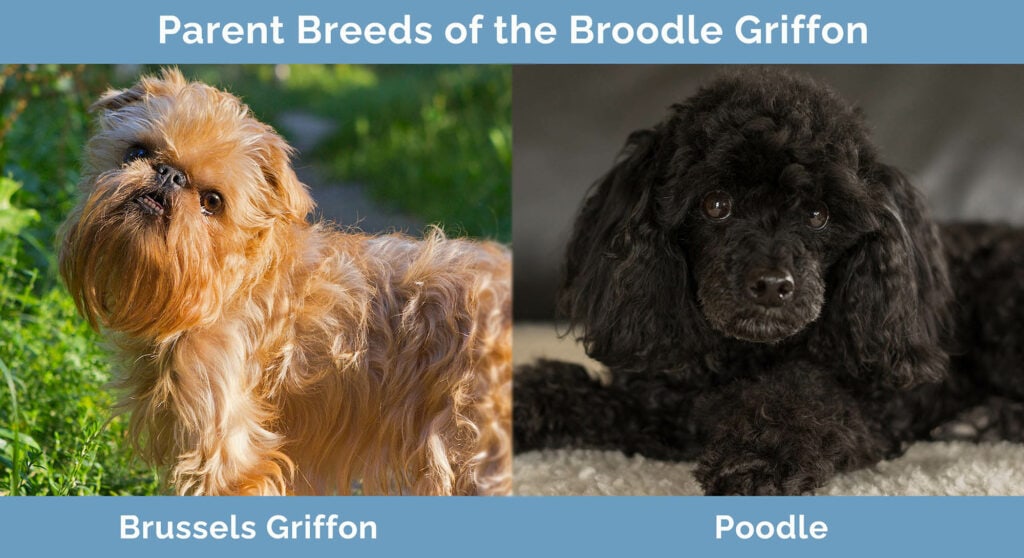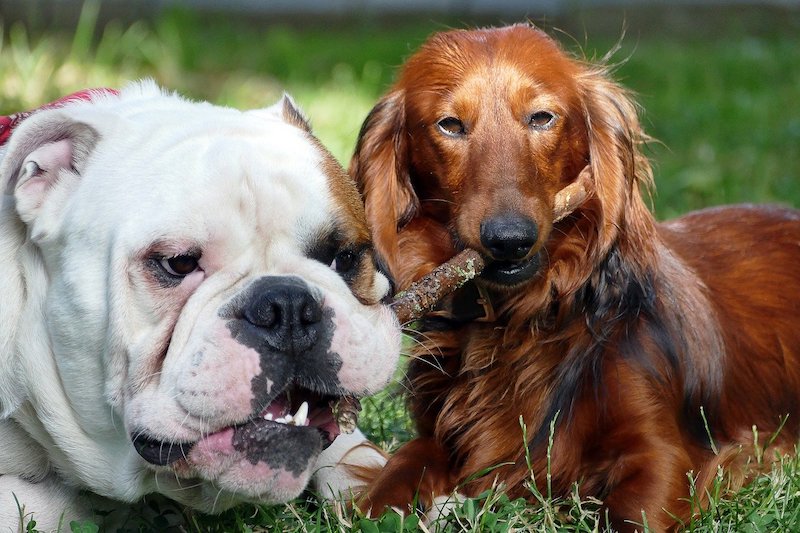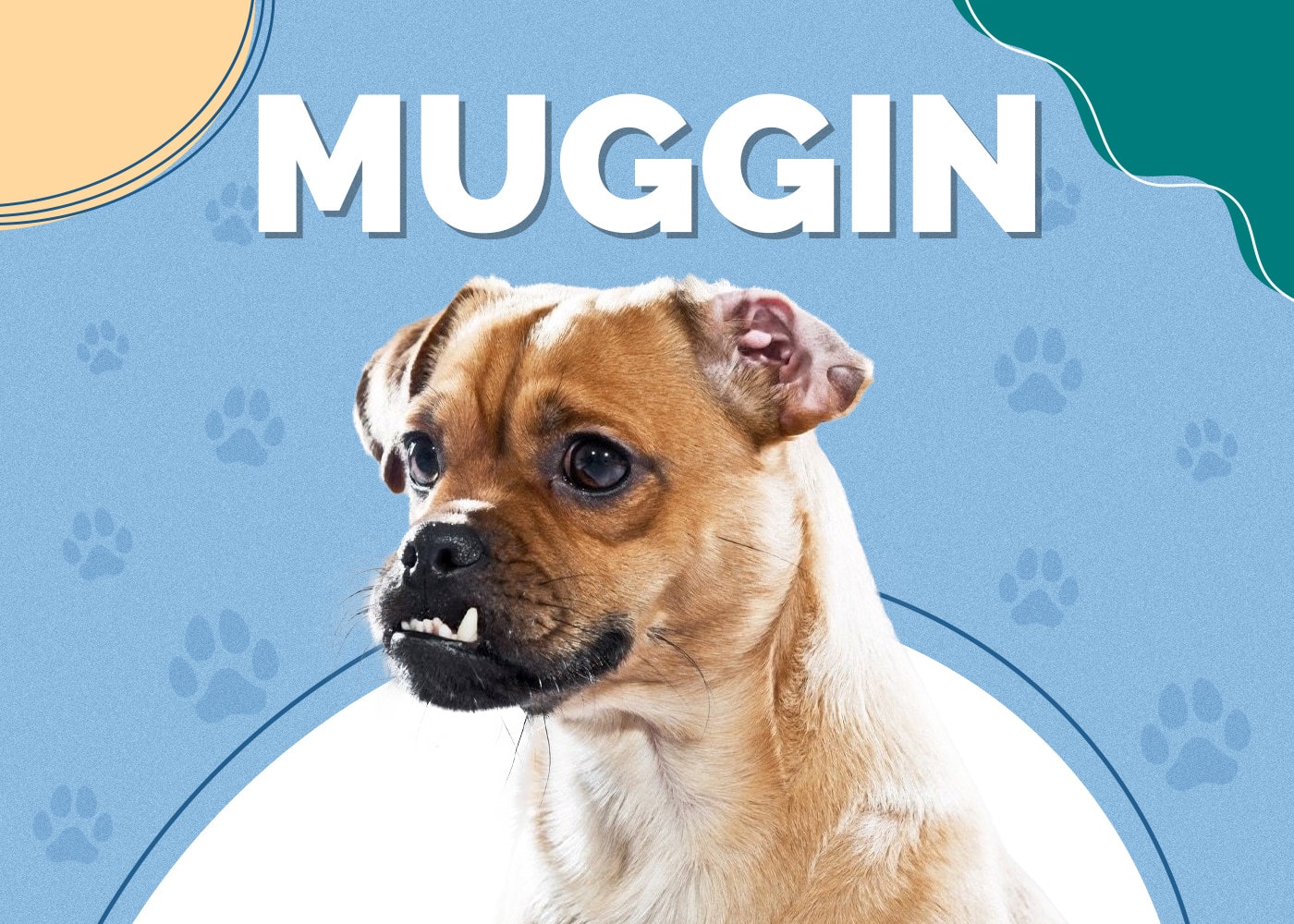Broodle Griffon (Brussels Griffon & Poodle Mix): Info, Pictures, Characteristics & Facts

Updated on

Height:
8-10 inches
Weight:
7-12 pounds
Lifespan:
10-15 years
Colors:
Brown, black, white, fawn, cream
Suitable for:
New dog owners, families of any size, retirees, attentive owners
Temperament:
Intelligent, Affectionate, Loving, Energetic, Playful
The Broodle Griffon is a mix between a Brussels Griffon and a Poodle. This hypoallergenic hybrid is a small dog that is full of life, love, and personality. These dogs are very playful and love being around their families, and they’re happiest when interacting or playing with their owners.
They desire nearly constant attention and are eager to please, which makes them very easy to train. They also inherit intelligence from their Poodle ancestors, so they are likely to pick up on commands and tricks quickly.
They make excellent family pets for families of all sizes, but despite their small stature, they may not be suitable for apartment dwellers due to their tendency to bark. We’ll discuss everything you need to know about this breed to decide if this is the breed you and your family have been searching for!
Broodle Griffon Puppies
Some dogs require a lot of exercise, and some require a lot of mental stimulation, but the Broodle Griffon requires a lot of attention above all else. This breed depends on attention from its owners, and they will always need interaction from you or your family. These pups don’t do well in isolation, especially as puppies, so you need to be prepared to shower your dog with affection and attention from an early age to keep them happy.
While small dogs may be more easily manageable physically, emotionally these pups can be a bit challenging. Small dogs many times develop what is referred to as “small dog syndrome,” which is when a small dog is catered to too much and develops a dominant personality. You need to be prepared to establish yourself as a firm leader in your home to ensure your pup understands their place in your family. Small dog syndrome is fairly easy to avoid if you begin establishing yourself as the leader from an early age; it becomes more and more difficult as your pup gets older, so start young!
Lastly, you should be prepared for barking with this breed. Don’t let their small size fool you — they can cause quite a commotion. It’s unlikely that you’ll get rid of this tendency completely, but proper training from a young age can help limit it.
3 Little-Known Facts About the Broodle Griffon
1. They have an extensive history.
While the Broodle Griffon is considered a designer breed that was popularized in the late 1900s, the parent breeds date back for quite a long time. The exact origin of the Poodle is unknown, but experts believe they can trace them back all the way to around the 8th century. They traveled from China to Germany where they were bred and popularized. The Brussels Griffon is also believed to have originated in Germany, but much later in the 17th century. They were originally bred as working dogs to rid of rodents and other small animals on their owner’s properties.
2. They make good watchdogs.
While they may not be intimidating with their small size and unassuming stature, these little pups actually make good watchdogs. They are very alert, so they’ll always be on the lookout for potential threats. They’re also loyal and eager to please, so while their barking may not scare away intruders or any kind of danger, it will serve as a warning for you or your family that there may be danger of some sort.
3. They are distrustful of strangers.
These little pups are full of love and affection for their family members, so you may be surprised to find out that they easily get anxious and uncomfortable around strangers. They inherit this trait from both parent breeds, but the degree to which they are wary with strangers around can vary quite a bit. Your pooch is likely to be a bit timid and unsure at first but then warm up gradually.

Temperament & Intelligence of the Broodle Griffon 🧠
The Broodle Griffon is a cheerful and positive little pooch who is bound to bring a lot of joy and laughter wherever they go. They are energetic and love human interaction, so they are always in the mood to play.
These pups are loyal and loving, and they crave attention from their owners. They enjoy playtime and exercise, but they are happiest when they can curl up on your lap or snuggle next to you on the couch. They have a warm and loving demeanor that will present itself through lots of affection.
Are These Dogs Good for Families? 🏡
The Broodle Griffon makes an excellent family dog. They will happily get along with and spend time with any member of your family, young or old, and this includes children as well. They may have small bodies, but they have big hearts, so there will be plenty of love to go around!
These dogs are great with kids of all ages as well. However, you should supervise your child when playing with your Broodle Griffon, only because this is a very small dog that can easily be hurt by rough play. Your child will never be in danger, but you’ll want to make sure your pup doesn’t accidentally get injured.
Like we mentioned earlier, the Broodle Griffon can easily adopt “small dog syndrome,” which leaves them feeling in a position of power and authority in your home. You’ll want as many family members as possible to pitch in on training, as this will help establish your dog’s place in your home and dominance for all of your family.
Does This Breed Get Along with Other Pets? 🐶 😽
The love and acceptance the Broodle Griffon has for its human family members will extend to any other dogs you have at home as well. These are welcoming and loving dogs that won’t have any issue cohabitating with furry brethren. You may find that your pooch is a bit timid around or distrustful of unfamiliar dogs they meet on walks or at dog parks, but you’ll never see any aggression from your dog in these cases. Early socialization will go a long way in establishing good relationships between your Broodle Griffon and any other dog in our outside of your home.
Because the Brussels Griffon was bred to rid areas of rodents, your Broodle Griffon is likely to have a fairly high prey drive. This means that, while they’ll get along with dogs just fine, cats may present an issue. Early socialization with your cats may help establish a positive relationship, but these pups are recommended for homes without cats, rabbits, or other small animals.
Things to Know When Owning a Broodle Griffon
Food & Diet Requirements 🦴
Given your dog’s size, you can expect a fairly small appetite from your pooch. Expect to feed your dog about a cup of dry dog food daily, and this should be split up into two meals throughout the day.
There aren’t many diet requirements for this breed other than offering food that is high in protein and contains multiple sources like fish, chicken, and beef. Your dog may be small, but their level of activity and playfulness will usually be high, so a nutrient-dense food packed with protein is best to keep your dog happy and healthy.
Exercise 🐕
Your Broodle Griffon will be perky and energetic despite their small size, so you’ll need to set aside plenty of time for exercise each day. You should plan to dedicate about 45 minutes on a daily basis for walks or outdoor play.
Your dog will have a fairly constant energy level, so they’re likely to be in the mood to play almost all the time. While playtime is great for these dogs, especially given how much they love human interaction, it shouldn’t replace dedicated exercise time.
These pups will love playtime in the yard, but you need to ensure that you have very secure fences and gates. These dogs are small and can easily get through very small openings, and they do inherit a tendency to wander off from their Brussels Griffon parent breed. Keep your yard fully secure and always keep an eye on your pooch when they’re outside to make sure they’re not making a break for it.
Training 🦮
The Broodle Griffon is eager to please its owners, and they inherit a high intelligence from their Poodle ancestors. These two traits make a very fast-learning dog who is very obedient. These pups will learn new commands, rules, and tricks very quickly, and they’re likely to be housebroken in just two or three weeks.
When training, it’s important to remember that this dog easily acquires small dog syndrome. They need leadership from their families, otherwise, they will become dominant and choose not to listen to anything you say. You and your family members should all plan to take part in training and establishing leadership, and this training should continue from puppyhood into adulthood.
With that being said, these are easily trained dogs that don’t take much effort or repetition to become obedient. They are recommended even for inexperienced dog owners, as long as they are willing to put in a little time and effort for training.
Grooming ✂️
Your Broodle Griffon’s coat can vary quite a bit depending on which parent breed they resemble more. They can inherit either a wavy or curly coat from their Poodle parents or a straighter, smoother coat from the Brussels Griffon. Curly coats will generally need brushing with a wire brush two to three times a week, while straighter fur can be brushed about once a week.
Broodle Griffons are generally clean dogs that don’t require much bathing. Baths should be given on an as needed basis, as frequent bathing can lead to dry and irritated skin. Plan to bathe your pooch about once every two months unless they get particularly dirty during playtime.
You will need to take your pooch to the groomer to get their fur trimmed unless you have experience with doing it yourself. Groomer visits can be made as needed as well, but they’ll likely be required every 4 to 6 weeks.
Beyond coat maintenance, grooming is fairly straightforward. You should keep your dog’s nails clipped, brush their teeth about once a week, and wipe any wax build-up and debris out of their ears once a week to prevent infection.
Health and Conditions ❤️
As a mixed breed, the Broodle Griffon isn’t affected by as many health issues as their parent breeds. However, no dog is without their possible health issues, so keep an eye out for the more common problems (below), and schedule routine checkups with your vet to be on the safe side.
- Eye issues
- Respiratory issues
- Tracheal collapse
- Aortic stenosis
- Addison’s disease
Male vs Female
For the most part, male and female Broodle Griffons will be about the same as far as temperament and behavior go, as these often depend more on which parent breed they resemble more closely than they do on sex. You may find that males are a bit more distrustful of strangers and unfamiliar dogs, and they may be a bit more playful and energetic as well. Males can also be a bit larger with the ability to stand up to 6 inches taller and weigh up to about 8 pounds more.
https://www.instagram.com/p/B1PvhU8HIpt/?img_index=1
 Final Thoughts
Final Thoughts
The Broodle Griffon is a wonderful and cheerful little dog that brings joy and happiness wherever it goes. They are loyal and loving, and they make excellent pets for families of all sizes, including those with children.
They are emotionally needy and sensitive pups, so they don’t do well in isolation. They thrive on human interaction, and while they love playing outside and going for walks, they’re happiest when they can be affectionate and snuggly with their owners.
While this breed isn’t for everyone, families looking for a good companion dog with a playful and friendly nature, a positive attitude, and a big heart may find that this is the perfect breed for their home.
Related Reads:
- Goldador (Labrador & Golden Retriever Mix)
- Cava-Corgi (Pembroke Welsh Corgi & Cavalier King Charles Spaniel Mix)
Featured Image Credit: Okssi, Shutterstock











